Buying or Selling Your Home?
Buying a home?
If you are buying a home located in a community association, you should be able to familiarize yourself with how this form of ownership differs from other forms of ownership. We have provided a general overview below, and you can become an HOA guru by visiting our Association Learning Center.
What is the Purpose of a Community Association?
- Maintain common elements of the community
- Ensure compliance with the governing documents
- Conduct the business of the association
These goals are achieved by administering, maintaining, and enhancing a real estate development by establishing a system of property rights, binding covenants and restrictions, and rules and regulations.
A community association combines the characteristics and activities of a local government, a business, and a community.
Owning Property in an Association
Many people need to understand what they are becoming part of when they purchase property governed by an association.
The disclosure statement signed by homebuyers when they contract to purchase a home within an association informs them that the association exists and gives them some basic information regarding such. However, those disclosures do not detail the responsibilities and obligations accompanying owning an association’s property.
There are some basic things both homebuyers and homeowners should know when purchasing and living in a community or condominium with an association.
- Do your homework about the association before you make an offer.
- Know who is in charge. Almost always, the association is a non-profit corporation governed by a board of directors. The Board is either the declarant (developer/builder) or elected residents. Find out if the Board contracts with a professional management company or not.
- Know if your association is pre or post-transition. Transferring control from the developer to the association residents is called ‘transition.’ The developer can amend the documents and change development standards when in power.
- Ask for and read the governing documents before making an offer.
- Ask for and review the association’s financials. – Review the operating budget and make sure the reserve fund is adequate for future capital projects.
- Know that association fees (assessments) are required and that the board usually has the authority to impose special assessments.
- Know that you must abide by the rules or gain the community’s support to amend the governing documents and regulations.
- Know that the board can assess fines, restrict access to services, place liens, and foreclose.
- Know that association laws vary widely by state and are complicated. Right or wrong, lawsuits are expensive, time-consuming, and stressful. Educating yourself rather than becoming involved in a case would be better.
- Don’t be a whiner if you don’t do your homework and purchase in a community with association issues. Your alternatives include accepting the problems, making things better by volunteering to serve, filing a lawsuit, or moving. Information adapted from https://www.hoa-usa.com
- Know the Rules – Understand and comply with the restrictive covenants, by-laws, and other rules and regulations.
- Know that you must pay for your assessments on time.
- Remember not to ignore communications from your association, especially notices that may regard outstanding assessments, issues of compliance, or fines. The board is responsible for governing fairly and consistently in the interest of all members, including placing liens or foreclosing for nonpayment of assessments and fines. Don’t let a minor fine escalate to the point that the association board must turn the matter over to an attorney. A fifty-dollar fine can easily lead to five hundred dollars to five thousand dollars.
- You must maintain your property according to the governing documents and rules.
- Know that an Architectural Review Application and approval are generally required before making improvements. This typically includes sheds, fences, above-ground pools, playground equipment, and much more. This may also include paint colors, door styles, landscaping, and mailboxes.
- Know that your association has certain responsibilities to the membership, including compliance with federal and state laws, fiduciary responsibility by board members, elections, meeting notices, meetings, due process, and much more as defined in the covenants and bylaws.
- Stay informed and participate in the business of your homeowner association by reading the meeting minutes, attending the annual meeting, understanding the budget, and volunteering to serve on a committee or the board.
- Maintain a current address with your homeowner association. This is critical if you are a homeowner association member but do not live in the community. Examples include rental property, second homes, homes used by children in college or retired parents, or investment property intended for future construction.
- Know that if your home is a rental property or occupied by others, ensure that tenants/occupants understand that they must also comply with certain restrictive covenants such as parking, pets, architectural changes, and other requirements. This may also include association rules regarding the use of playgrounds, pools, tennis courts, parking, and other common areas.
- Know who is in charge. Maintain contact information for an association representative. This may be an on-site employee, a management company, a board member, or the builder/developer. Information provided by https://www.hoa-usa.com.
Selling Your Home?
If you are preparing to sell your home, please make sure you get all the association details needed to complete your real estate transaction.
To simplify the process, Spaces Management has partnered with HomeWise Docs to offer an effective method for ordering and delivering all of the information needed to complete a transaction, including resale disclosures, statements of accounts, lender-required documents, and other closing documents required for your community.
Please refer your Realtor, Lender, or Closing Attorney to the Service Providers section of our website to use the HomeWise Docs links for all document requests for communities managed by Spaces. Creating an account is easy; they can start utilizing the system immediately. HomeWise representatives are also available to help with any questions by calling 1-866-925-5004.
Lender Questionnaires
- Standard Lender Questionnaire Bundle – includes budget, insurance declaration page, Lender Questionnaire
- Premiere Lender Questionnaire Bundle – includes: Budget, insurance declaration page, lender questionnaire, Financials, Articles of Incorporation, Bylaws, CC+Rs, Special Assessments, and Litigation
Resale Certification
- Statement of Account and Payoff Balance: Includes the financials, Articles of Incorporation, Bylaws, CC+Rs, Insurance Declaration page, Special Assessments, and Litigation
Bank-Owned Property Package
This package includes Financials, Articles of Incorporations, Budget, Bylaws, Closing Statement of Account, Declaration-CC&R, Insurance Declaration Page, Litigation, Resale Certificate Disclosure, Rules and Regulations, Special Assessments, Unit Ledger, and W-9.
Did You Know?
Most neighbors say their association plays a vital role in preserving the value and integrity of their individual investments.




